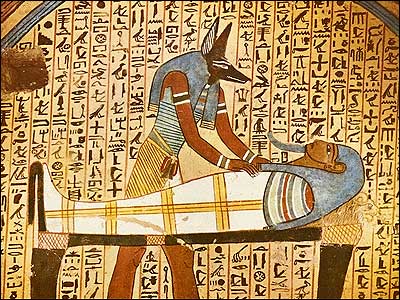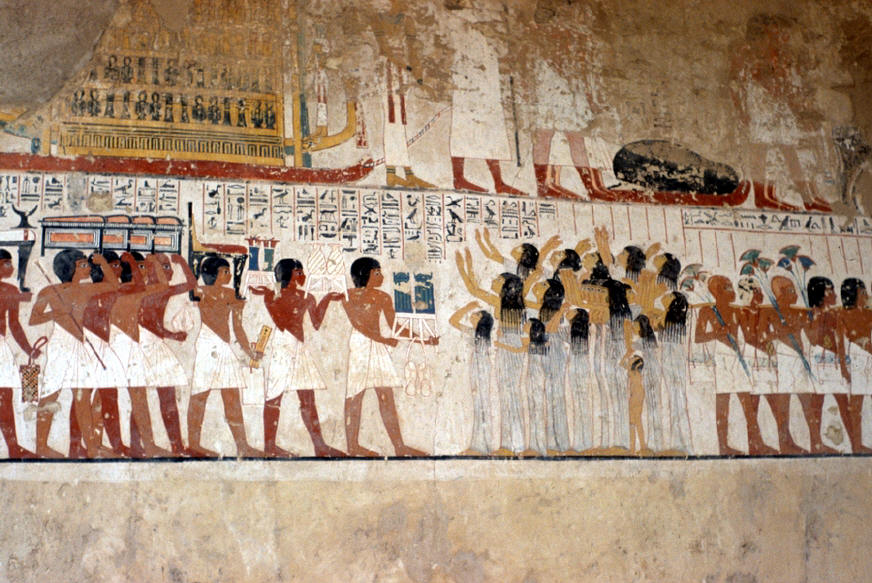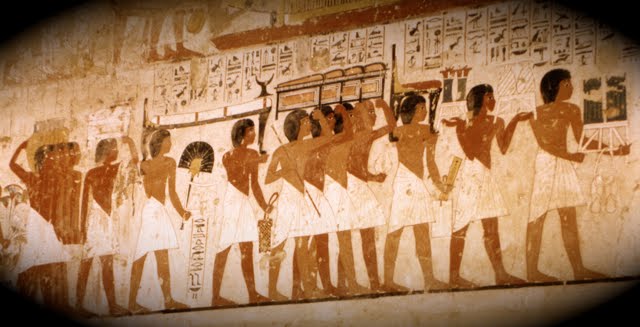This is our “E” entry for the Blogging A-Z Challenge, 2014. We look at Egypt though our theme “A weird and Zany world”
Probably having taught Ancient History for so long, it has been a conundrum for me as to whether I want to visit there or to retain my illusions about ancient Egypt. Certainly seeing a photo of the pyramids of Giza taken through a McDonald’s window from one of my students did not make me very happy. However, there is a lot more to Egypt than some crass commercialism, which is ill placed.
Death in Ancient Egypt
Contents
It got me thinking about how death was such a big deal in Ancient Egypt. The pyramids, mummification, etc. is well known to everyone. What I wondered was ‘how’ much of the past has influenced the future?
Egypt is a hot country, and it was by accident that mummification was discovered. When people died, they were buried in sand, which dehydrated the body. They improved on this by using natron and by removing certain organs. This was an important premise for going into the afterlife.
Nowadays the heat remains a problem. If a person dies by Islamic custom they are buried before sunset that day or within three days. The body of the deceased is taken to the home and requires many fans to keep the smell at bay.
What happens if you die in Egypt today?
This is the situation where family and friends come to the house and are greeted by loud wailing by men and women, and they can say their final farewells to the deceased. Once the body has been dressed, the coffin is shut and is never opened again.
When the designated time of the funeral arrives, all of the family and mourners proceed to the church with the coffin held aloft. This is again accompanied by the wailing and the crying and trilling or Ululation.
People continue to join the procession and also cry and wail for the body. The people stop their day-to-day activities out of respect. There are many buy cialis in china frescoes still in existence that show this procession and similar rituals from ancient times.
The mosque service is somber and in TOTAL silence. When the final benediction is given, and the priest or Imam says Amen, then the wailing takes off in a big way.
The cortege then goes to the gravesite (though cremation does exist) and the body is interred there.
After that, for three nights there is visitation and fasting where the deceased’s friend join the family. They are then permitted to return to work but for forty days after death, there is an official mourning period for the deceased, in which special prayers and rituals are observed, and friends and relatives frequently gather to pay their respects to the surviving relatives.
Some people still select to have mummification performed much as they did in ancient times. Similarly, some people still hire women as mourners who follow the funeral procession, wailing loudly. Nowadays often men are employed which seems to be a modern-day addition to a past practice.
The Egyptians see Life and Death positively
For the Egyptians past and present, there is gratitude for the life that has been lived and the life that will be lived.
So in many respects, Egypt has not strayed too far from the past in some aspects in their approach to death.Is is still seen as a passage from one life to the next. Makes you think that there is not a lot of dissimilarity to many other religious beliefs. That there is something after death and that this is but a journey. Maybe practices vary slightly from Ancient times to modern times, and vary slightly from one religion to another. There appears to me, that there are more similarities than differences.
We next look at a country starting with “F” in the Blogging A-Z Challenge, 2014.
Love you to catch up on our A – D and to see what is still to come in this exciting challenge.





Catching up with Es this morning and have found 3 on Egypt! All fascinating and all making me regret my total lack of visits not only to Egypt but to anywhere in Africa. Must rectify this, but like the commenter above, am wary of the political situation for now.
We haven’t ventured to Africa yet but one day.
Death, pharoahs, tombs, that’s why I went to Egypt, but it can be a difficult place to visit. Love the post!
Thank you, appreciate your support 🙂
Really love that you chose Egypt also but that you took a completely different approach than we did. It’s great to learn about this history and I can only imagine what it is like to be inside Egypt, touring all the great attractions and learning about Ancient times.
Looking forward to see where you go next in the challenge, of course let’s take advantage of the day off tomorrow (sorry, today for you guys in Oz) 🙂
I love that we have done some of the same letters yet we are taking different approaches. It totally works. Let’s see how many more we get. I think F, H, J, … actually probably a lot. We are all doing so well aren’t we 🙂
Very interesting post! Although I can’t fathom bringing a deceased family member home for a few days it’s always interesting to learn about other customs and cultures. As for Egypt, I’d love to visit someday. We actually wanted to make our way there last winter but with the conflicts going on right now we opted for more of Europe instead.
I agree, much as we don’t worry about much we also don’t go looking for issues. I was at a funeral recently and it was an open casket. There were 24 floor boards in my sight 🙂
Very interesting and informative piece. Never heard of hiring mourners, such a different culture! I always thought the Mexican view on death with the Day of the Dead was interesting as well.
DId your visit live up to your expectations? I’ve also visited a couple places where my own ideas of the place made it a bit disappointing, but still worth the visit!
I have read about the Day of the Dead. It is all so culturally different which is why I love travelling so much 🙂
An interesting post Paula! I have always been fascinated by Egypt but each time we have planned a visit lately, there’s been a bit of trouble on the horizon and we’ve had to delay. It’s interesting that the mummification process is still available. I wonder how many use it!
I have been obsessed with Ancient History for ever, thus teaching it ..forever. Thanks for the comment.